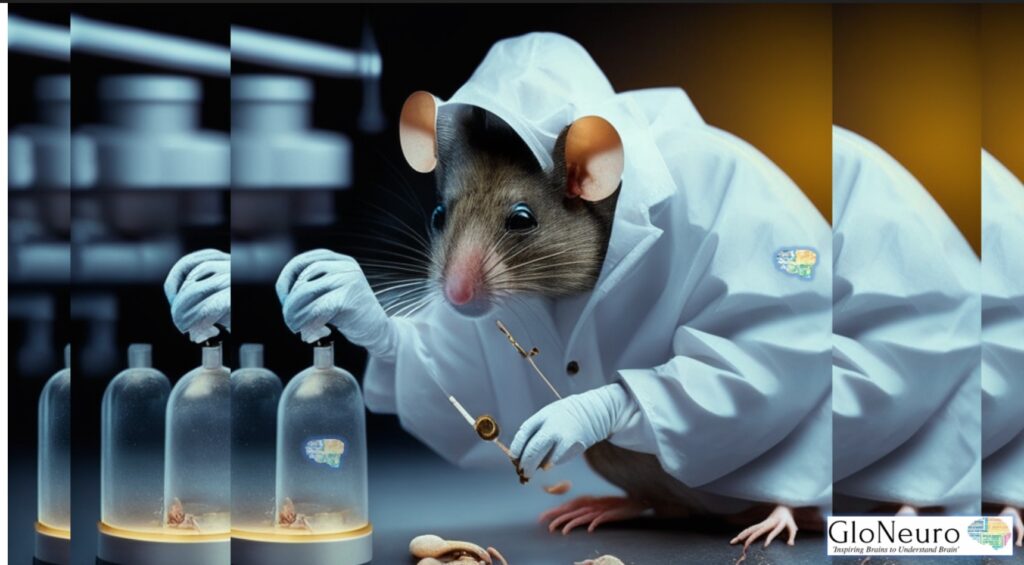
Animal behavior refers to the actions and responses exhibited by animals in their natural environments. It encompasses a wide range of activities and includes various aspects such as feeding, mating, communication, territoriality, migration, and social interactions. Animal behavior is influenced by a combination of genetic factors and environmental stimuli. Scientists study animal behavior to gain a better understanding of how animals adapt and survive in their respective habitats. They employ different methods such as field observations, controlled experiments, and laboratory studies to investigate various aspects of behavior. By studying animal behavior, researchers can uncover insights into evolutionary processes, ecological relationships, and the underlying mechanisms that drive certain behaviors.
Animal behavior has long captivated scientists and researchers, offering valuable insights into the complexities of the natural world. Through the lens of neuroscience, the study of animal behavior has taken on a whole new dimension, providing a deeper understanding not only of our animal counterparts but also of ourselves as humans. Exploring the intricacies of animal behavior offers a unique vantage point to study a range of topics, including diseases, mental health, and therapeutics, enabling us to unlock the secrets of our own minds and bodies.
The study of animal behavior in the context of neuroscience allows us to comprehend a myriad of other topics with greater clarity. By observing how animals navigate their environments, forage for food, and communicate with one another, we gain insights into fundamental principles of survival and adaptation. This knowledge is crucial for understanding ecological relationships, evolutionary processes, and the dynamics of ecosystems. It helps us recognize the interconnectedness of species and the delicate balance necessary for the preservation of biodiversity.
Animal behavior research, coupled with neuroscience, plays a pivotal role in unravelling the mechanisms underlying various diseases and mental health conditions. Many animal species exhibit behaviors that parallel human psychiatric disorders, such as anxiety, depression, and addiction. Studying these behaviors in animals provides essential clues about the underlying neural circuits and molecular pathways involved. Animal models offer a valuable platform to investigate the causes, symptoms, and potential treatments for neurological and psychiatric disorders. By simulating human conditions in animals, researchers can explore the efficacy of potential therapeutics and interventions, leading to the development of innovative treatment strategies. For example, studies on animal models have provided significant insights into conditions like Alzheimer’s disease, Parkinson’s disease, autism spectrum disorders, and addiction. Animal behavior research helps in understanding the complex neural processes associated with these disorders, paving the way for the development of targeted interventions and potential cures.
Animal behavior research in neuroscience is not only vital for understanding diseases but also holds promise for therapeutic development and improving human health. The exploration of animal behavior contributes to the development of drugs, therapies, and techniques that enhance mental well-being, cognition, and overall quality of life. Animal models are utilized to test new medications and treatments, evaluate their safety and efficacy, and optimize dosages. By analyzing the behavioral responses of animals to therapeutic interventions, researchers gain valuable insights into the potential effects on human subjects.
Furthermore, the study of animal behavior aids in the development of innovative therapeutic techniques, such as animal-assisted therapy. Interacting with animals has been shown to have positive effects on mental health, reducing stress, anxiety, and depression. Understanding animal behavior allows us to harness the power of these therapeutic interactions and incorporate them into holistic treatment approaches.
Some common areas of study within animal behavior include:
1. Behavioral Ecology: This field focuses on how animals interact with their environment, including aspects such as foraging, predator-prey relationships, and reproductive strategies.
2. Ethology: Ethology is the scientific study of animal behavior in natural conditions. It involves observing animals in their natural habitats and analyzing their behaviors.
3. Social Behavior: Social behavior explores how animals interact and communicate within social groups. It examines concepts like dominance hierarchies, cooperation, aggression, and mating systems.
4. Comparative Psychology: Comparative psychology involves comparing the behavior of different animal species to understand similarities and differences. It helps to shed light on the evolution of behavior across different lineages.
5. Behavioral Genetics: This field investigates the genetic basis of behavior. Researchers study how genes and genetic variations influence behavior in animals, including traits like aggression, learning ability, and personality.
6. Cognitive Behavior: Cognitive behavior examines the mental processes and intelligence of animals. It explores topics such as problem-solving, memory, and learning abilities in various species.
7. Communication: The study of animal communication focuses on how animals convey information to one another using various signals, such as vocalizations, body language, or chemical cues.
Animal behavior research has practical applications in fields such as conservation, animal welfare, and understanding human behavior. By understanding how animals behave in different contexts, scientists can develop conservation strategies, improve animal welfare in captive settings, and gain insights into human behavior and psychology.
The study of animal behavior through the lens of neuroscience opens up a world of possibilities for understanding and improving human health. By unraveling the intricacies of animal behavior, we gain invaluable insights into ecological dynamics, evolutionary processes, and the mechanisms underlying diseases and mental health conditions. This knowledge serves as a foundation for the development of therapeutic interventions and strategies to enhance human well-being. In the GloNeuro articles, we shall be appreciating the richness and diversity of animal behavior, we uncover not only the wonders of the natural world but also the secrets to our own existence.